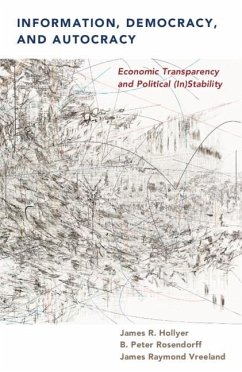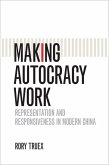Advocates for economic development often call for greater transparency. But what does transparency really mean? What are its consequences? This breakthrough book demonstrates how information impacts major political phenomena, including mass protest, the survival of dictatorships, democratic stability, as well as economic performance. The book introduces a new measure of a specific facet of transparency: the dissemination of economic data. Analysis shows that democracies make economic data more available than do similarly developed autocracies. Transparency attracts investment and makes democracies more resilient to breakdown. But transparency has a dubious consequence under autocracy: political instability. Mass-unrest becomes more likely, and transparency can facilitate democratic transition - but most often a new despotic regime displaces the old. Autocratic leaders may also turn these threats to their advantage, using the risk of mass-unrest that transparency portends to unify the ruling elite. Policy-makers must recognize the trade-offs transparency entails.
Dieser Download kann aus rechtlichen Gründen nur mit Rechnungsadresse in A, B, BG, CY, CZ, D, DK, EW, E, FIN, F, GR, HR, H, IRL, I, LT, L, LR, M, NL, PL, P, R, S, SLO, SK ausgeliefert werden.









